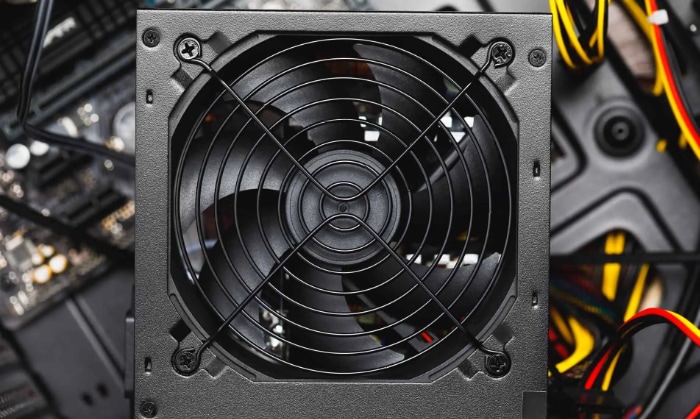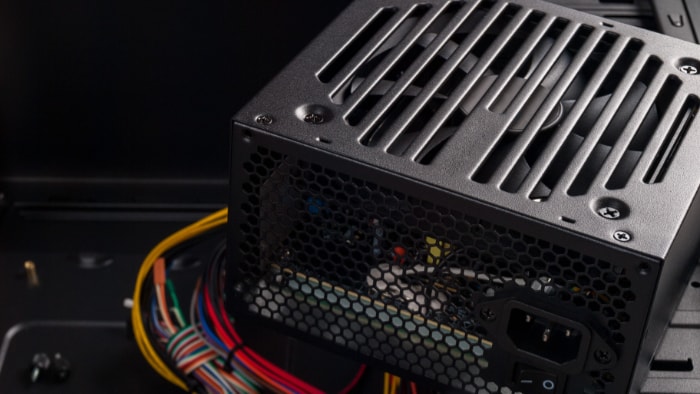The Lifespan of PC Power Supplies: How Long Do They Last?

Power supplies are often the unsung heroes of our computer systems, quietly fueling every task and gaming marathon. While they don't get the same spotlight as flashy graphics cards or lightning-fast processors, their role is just as crucial.
But how often do we stop to consider the lifespan of these vital components? This article sheds light on the longevity of PC power supplies, a topic that's key for anyone who relies on a computer.
From understanding their average lifespan to recognizing when it's time for a replacement, we explore all the facets that help you keep your system running smoothly and efficiently.
Average Lifespan of Power Supplies
Power supplies, a key component in your PC, don't last forever. Knowing how long they typically last helps you plan for upgrades and avoid sudden system failures.
While the lifespan of a power supply varies based on several factors, there's a general timeframe you can expect.
General Lifespan Range
Most power supplies in personal computers have a lifespan ranging from 5 to 10 years. This range isn't set in stone, as numerous factors can influence it.
High-quality power supplies often outlast their lower-quality counterparts, and how you use your computer also plays a significant role.
Factors That Affect Lifespan
A power supply's lifespan can be affected by various elements. These include the build quality, usage intensity, and environmental conditions.
For instance, a power supply in a heavily used gaming PC in a warm environment may not last as long as one in a lightly used office computer in a cooler setting.
Comparing with Other PC Components
Compared to other components like CPUs or GPUs, power supplies generally don't need to be upgraded as frequently. However, they are critical to the overall health of your system.
A failing power supply can lead to system instability or damage other components, making its lifespan a key consideration in PC maintenance.
Signs of Power Supply Deterioration
Recognizing the early signs of a failing power supply is crucial for maintaining the health and performance of your PC. These indicators can range from subtle hints to obvious warnings.
Being aware of these signs can save you from unexpected system failures and potential damage to other components.
Physical Signs
One of the first indicators of power supply issues can be physical signs. These include unusual noises like buzzing or grinding, which might indicate a fan problem or electrical issues within the unit.
Overheating is another red flag; if your power supply feels excessively hot, it might be struggling. Also, a burning smell coming from your power supply is a serious warning sign and should be addressed immediately.
Performance-Related Signs
Your computer's performance can also signal power supply problems. Frequent and unexplained system crashes or rebooting can be a symptom.
Similarly, if your PC struggles to start up or shuts down unexpectedly, it could be due to power supply issues. These performance issues often occur under high load, like during gaming or running intensive applications, indicating that the power supply can't keep up with the demand.
Monitoring Power Supply Health
It's a good idea to regularly monitor your power supply's health, especially as it ages. This can involve checking the physical condition, listening for unusual sounds, and being vigilant about any changes in system performance.
Early detection of these signs can prevent more serious issues and potentially save other components from damage.
Factors Influencing Power Supply Longevity
The lifespan of a power supply is not just a matter of time. It's influenced by a variety of factors, from the quality of its construction to the conditions it operates in.
Understanding these factors can help you maximize the life of your power supply, ensuring that your PC runs smoothly for as long as possible.
Quality and Brand Considerations
The build quality of a power supply is a major factor in its longevity. Higher quality models from reputable brands often use superior components that withstand wear and tear better than cheaper alternatives.
They also tend to have better warranties, reflecting the manufacturer's confidence in their product's durability.
Usage Patterns and Environmental Factors
How and where you use your PC can significantly impact the power supply's lifespan. High-intensity tasks like gaming or video editing put more strain on the power supply, potentially shortening its life.
Environmental factors like dust, humidity, and temperature also play a role. A dusty or humid environment, or operating the PC in a hot room, can lead to overheating and quicker degradation.
Maintenance and Cleaning Practices
Regular maintenance and cleaning are crucial for prolonging the life of your power supply. Dust buildup can impede airflow and lead to overheating, while poor cable management can restrict ventilation.
Keeping the interior of your PC clean and ensuring that cables are neatly organized helps maintain optimal operating conditions for your power supply.
Upgrading and Replacing Power Supplies

There comes a time in every PC's life when upgrading or replacing the power supply becomes necessary. This could be due to a variety of reasons, from performance degradation to the need for more power to support new components.
When to Consider an Upgrade
Upgrading your power supply isn't just about addressing wear and tear; it's often about meeting new demands. If you're adding more powerful hardware, like a high-end graphics card, you may need a power supply with greater wattage.
Signs of power supply inadequacy, like system instability under load, can also indicate it's time for an upgrade.
Steps for Safely Replacing a Power Supply
Safety is paramount when replacing a power supply. First, always disconnect your PC from any power source.
Carefully remove the old unit, keeping track of where each cable was connected. When installing the new power supply, ensure it's compatible with your PC's hardware.
Connect all cables firmly and route them neatly to avoid airflow obstruction.
Choosing the Right Power Supply for Your PC
Selecting the right power supply is crucial. Consider factors like wattage, efficiency ratings, and cable management options.
Make sure the wattage exceeds your system's needs, providing a buffer for future upgrades. An efficient power supply not only lasts longer but also saves energy.
Modular or semi-modular units can offer better cable management, contributing to better airflow and system tidiness.
Enhancing Power Supply Longevity
Maximizing the lifespan of your power supply is not just about choosing the right model; it's also about how you use and care for it. Adopting good practices can significantly extend the life of your power supply, ensuring that it provides stable power to your PC for years to come.
Best Practices for Power Supply Care
Regular care and attention can make a big difference in the lifespan of your power supply. This includes keeping your computer's interior free from dust, which can accumulate and cause overheating.
Ensure that the fan on the power supply is not obstructed and that it's functioning correctly to prevent heat buildup.
Role of Surge Protectors and UPS
Power surges and irregularities can be fatal for sensitive electronics like power supplies. Using a surge protector can shield your power supply from sudden spikes in voltage.
For even greater protection, especially in areas with unstable power, consider using an Uninterruptible Power Supply (UPS). A UPS not only guards against surges but also keeps your PC running during short power outages, preventing improper shutdowns.
Importance of Proper Ventilation and Cooling
Proper ventilation and cooling within your PC case are critical for the longevity of your power supply. Ensure that your PC case has adequate airflow and that your cooling system is effective.
This helps to maintain an optimal operating temperature, reducing stress on the power supply and other components. Regularly check and clean air filters to maintain good airflow.
Conclusion
Power supplies are vital components of your PC, and their health and longevity directly impact your computer's performance and reliability. From understanding their average lifespan to recognizing signs of deterioration, we've explored various aspects of power supply maintenance.
It's clear that factors like quality, usage, environmental conditions, and regular maintenance play significant roles in extending the life of these crucial units. Knowing when to upgrade and how to choose the right replacement ensures your system stays up and running efficiently.
Finally, adopting practices like using surge protectors and maintaining proper ventilation can further enhance the longevity of your power supply. Keeping these points in mind, you can ensure that your PC's power supply remains a reliable source of energy, supporting your computing needs for years to come.


